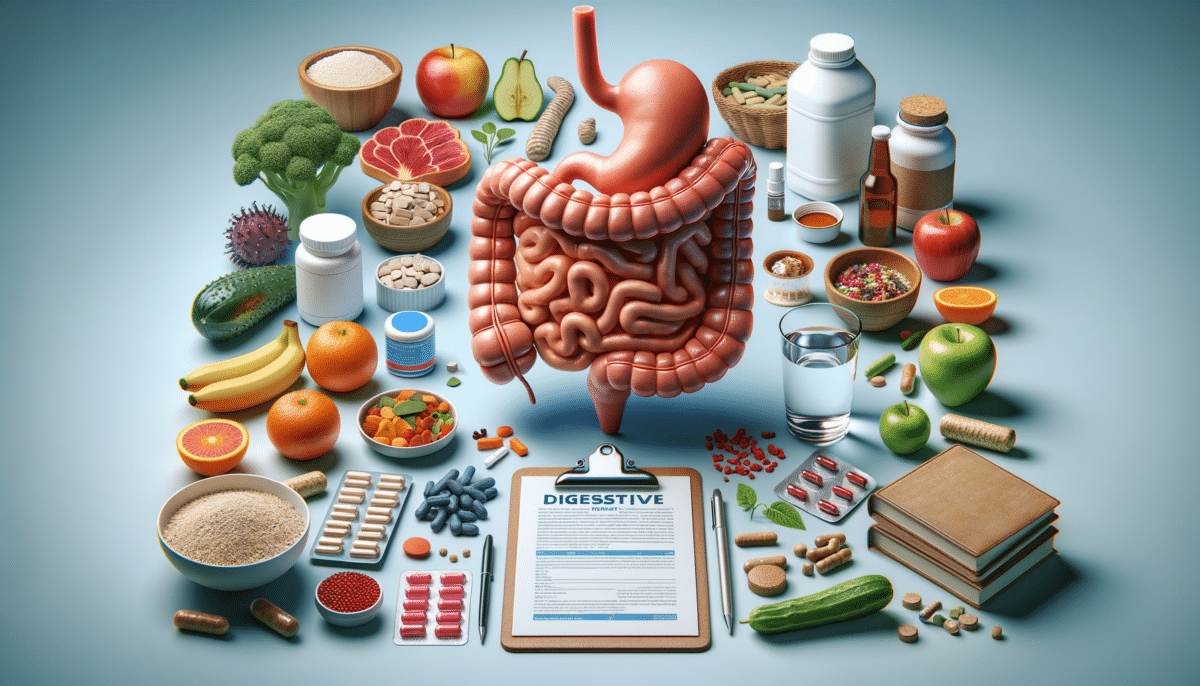Introduction to Digestive Health
Digestive health is a cornerstone of overall well-being, affecting everything from nutrient absorption to immune function. When the digestive system is not functioning optimally, it can lead to a range of issues such as bloating, constipation, diarrhea, and indigestion. Understanding the root causes of these problems is crucial for effective management and treatment. This article delves into the various aspects of digestive health, exploring common issues, treatment options, and lifestyle modifications that can promote a healthier digestive system.
Common Digestive Problems and Their Causes
Digestive problems are widespread and can arise from various causes. Some of the most common issues include:
- Gastroesophageal Reflux Disease (GERD): This condition occurs when stomach acid frequently flows back into the esophagus, causing irritation.
- Irritable Bowel Syndrome (IBS): A chronic disorder characterized by abdominal pain, bloating, and altered bowel habits.
- Constipation: Often caused by a lack of fiber, dehydration, or a sedentary lifestyle.
- Diarrhea: Can result from infections, food intolerances, or digestive disorders.
- Lactose Intolerance: The inability to digest lactose, a sugar found in milk and dairy products.
Each of these conditions can have different triggers, such as dietary choices, stress, or underlying health issues. Identifying the specific cause is key to developing an effective treatment plan.
Dietary Modifications for Improved Digestion
Diet plays a pivotal role in digestive health. Making informed dietary choices can alleviate symptoms and prevent digestive issues. Here are some dietary modifications that can support digestion:
- Increase Fiber Intake: Consuming a diet rich in fruits, vegetables, and whole grains can promote regular bowel movements and prevent constipation.
- Stay Hydrated: Drinking plenty of water aids in digestion and helps prevent constipation.
- Limit Fatty Foods: High-fat foods can slow down digestion and lead to bloating and discomfort.
- Incorporate Probiotics: Foods like yogurt and fermented products can enhance gut flora and improve digestion.
- Avoid Trigger Foods: Identifying and avoiding foods that trigger symptoms, such as spicy foods or caffeine, can be beneficial.
These dietary changes, combined with mindful eating practices, can significantly enhance digestive health.
Medical Treatments and Interventions
While lifestyle and dietary changes are effective for many, some individuals may require medical interventions to manage their digestive problems. Common treatments include:
- Medications: Over-the-counter antacids, proton pump inhibitors, and H2 blockers can help manage symptoms of acid reflux and GERD.
- Antibiotics: Used to treat infections that cause diarrhea, such as those caused by bacteria.
- Laxatives: For those suffering from constipation, laxatives can provide temporary relief.
- Enzyme Supplements: For conditions like lactose intolerance, enzyme supplements can aid in digestion.
- Surgery: In severe cases, surgical interventions may be necessary, such as for gallbladder removal or to repair a hiatal hernia.
It is important to work closely with a healthcare provider to determine the most appropriate treatment plan based on individual needs and symptoms.
Lifestyle Changes to Support Digestive Health
Beyond diet and medical treatments, lifestyle changes can play a significant role in managing digestive problems. Here are some strategies to consider:
- Regular Exercise: Physical activity helps stimulate intestinal function and can alleviate symptoms of constipation.
- Stress Management: Techniques such as yoga, meditation, and deep breathing can reduce stress, which is a known trigger for digestive issues.
- Adequate Sleep: Ensuring sufficient rest can support overall health and improve digestive function.
- Mindful Eating: Eating slowly and chewing food thoroughly can enhance digestion and prevent overeating.
- Avoid Smoking and Limit Alcohol: Both can irritate the digestive tract and exacerbate symptoms.
Incorporating these lifestyle changes can lead to long-term improvements in digestive health and overall well-being.
Conclusion: Taking Charge of Your Digestive Health
Digestive problems can be challenging, but with a comprehensive approach that includes dietary modifications, medical treatments, and lifestyle changes, individuals can manage their symptoms effectively. It is essential to listen to your body and seek professional guidance when necessary. By taking proactive steps, you can improve your digestive health, leading to a better quality of life and enhanced overall health.
